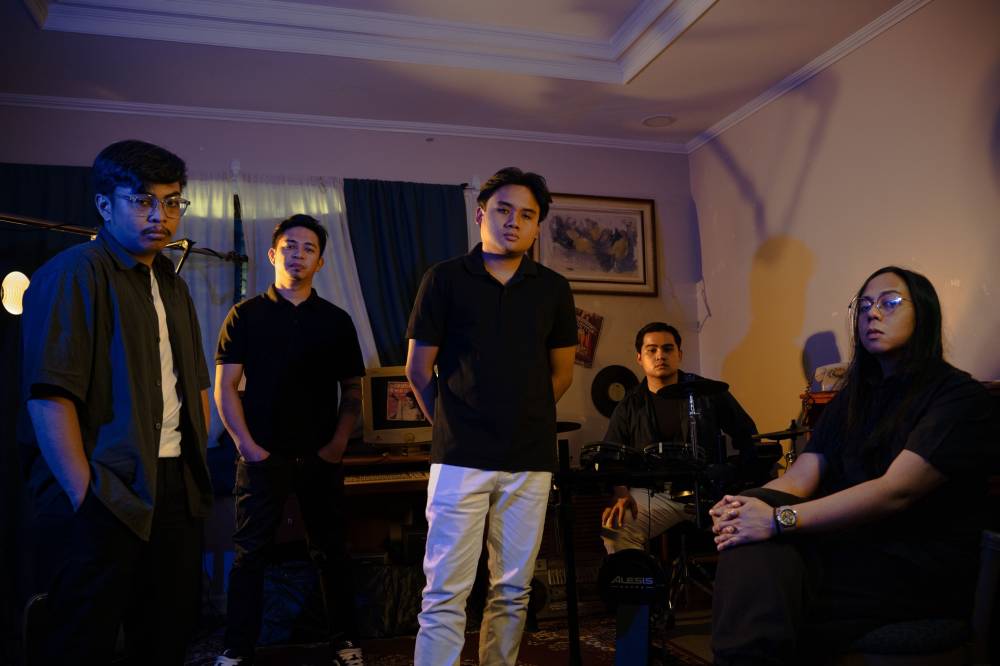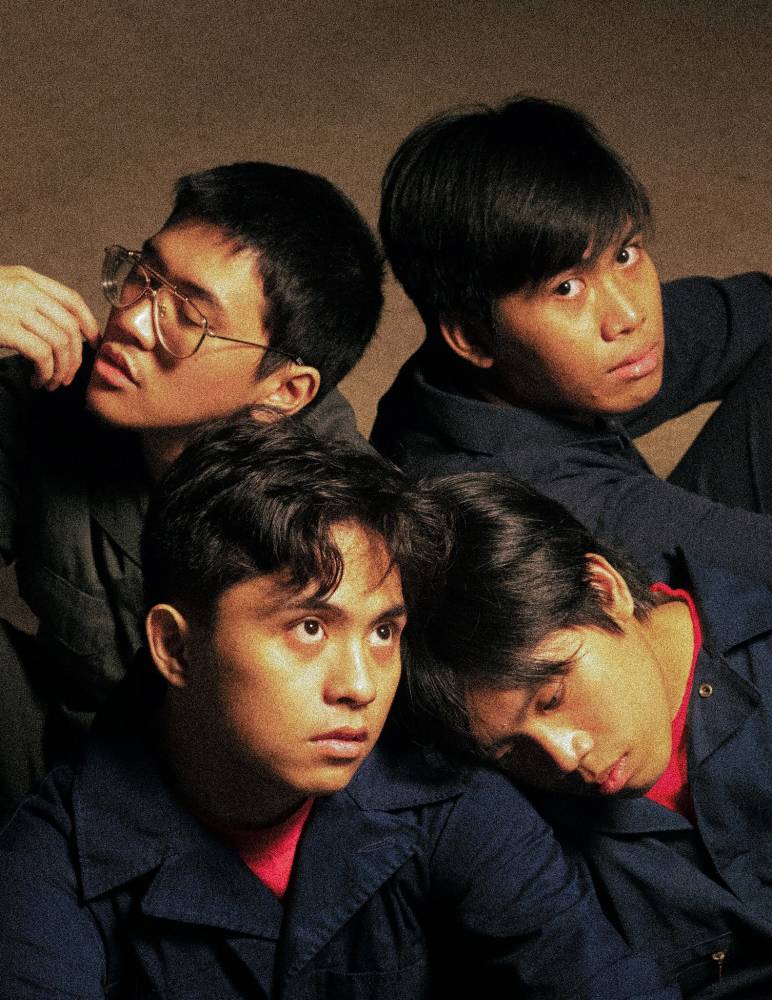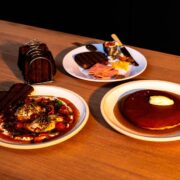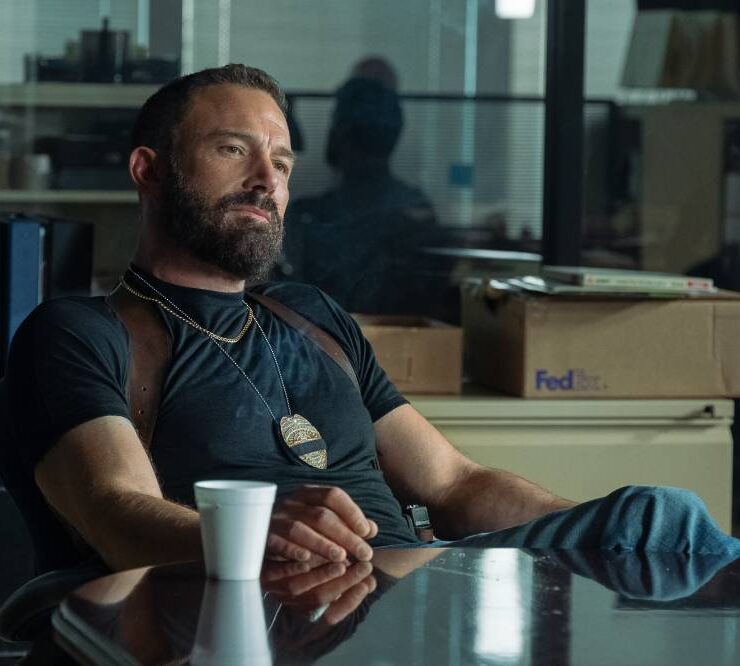How indie bands in Manila live the hustle

Manila is a chaotic concrete jungle, thriving in traffic jams and the buzzing nightlife. On a stage of any Manila bar, musicians plug in their guitars, murmuring “sound-check” into the mic for the awaiting audience—whether it’s a full house, or even just one person watching. Then, the first beat of the drum pulses through the air as the band unleashes its sound.
But off-stage, the hustle resumes: schoolwork, corporate life, rising costs, and agonizingly long commutes with an instrument on their back and an amplifier in their grip. Long before stepping foot into the bar, indie musicians must pay their dues through the unseen effort and commitment we rarely see in their set.
Here, we sat down with two rising groups—TBK, an indie-alternative OPM band, and Benchfly, a five-piece indie pop and alternative rock band—to shed light on independent music-making and how their passion continues to drive them despite the daily grind.
Describe Manila as a hub for the indie scene.
Kevin (Benchfly): Manila is a melting pot of the indie music scene. The authenticity in the art—[the] intimate lyrics and experimental instrumentals… all that draws listeners in. At the moment, there’s a growing trend of genre fusion. Artists often blend electronic elements with traditional music, creating a uniquely modern OPM sound. There’s also a rise in female-fronted bands that adds diversity.
Yoro (TBK): There are a bunch of local productions that rotate around the Metro Manila “circuit of bars and venues.” Sometimes they have themes. Minsan may mga Japanese cover night, indie night, ’80s, at ’90s. A random person pays to enter a bar with indie bands in it. Sometimes they hear a band they like, then eventually, they’ll look out for their next gig.

What are the cost-effective methods you have for gear and practice?
Edric (Benchfly): Invest in a multi-effects pedal. Space-wise and price-wise, there are a lot of choices you can buy online and in physical stores. I have been using my Boss ME-80 for at least six to seven years. It’s okay to buy secondhand equipment as long as you can gauge its quality and condition. Quality over aesthetic. Your real dream guitar can wait.
Yoro (TBK): [Our drummer] Elian’s dad is sound engineer Albert Michael Idioma. Really famous and a big contributor to Filipino cinema. Back when we were starting out in high school, we would practice in the home studio while the Idiomas were still at work. The drum kit was also there. So yeah, we’re lucky that we got to use that for free.
How do you balance late-night gigs with off-stage commitments?
Junelle (Benchfly’s manager): Everyone’s got stuff going on, so we make sure we’re clear about priorities. Sometimes, it means missing out on other things or turning down gig invites if the set times are too late. It’s exhausting, but the energy you get from playing live makes it all worth it.
What’s the hardest thing you face as an indie band?
Miguel (Benchfly): Now that I’m working in the corporate world, finding time for band rehearsals that work for everyone is a real challenge. But no matter how tired we are from day jobs, nothing beats the feeling of performing and connecting with the audience. The energy is just electrifying. While it’s tough, it’s a commitment we all share by making music together.
Elian (TBK): The very concept of pursuing it is hard enough. You have to be accepting and understanding if someone has something going on. Then, this thing that you really love at this moment will have to wait. It’ll wait until it can or it doesn’t [wait] at all. An indie band is rooted in nothing but passion, a pure feeling, which means it’ll always be fleeting.
Yoro (TBK): Adding onto Elian’s point on time, the age gap between the four of us is only one year. There’s the element of distance (we’re all taking different programs in different schools). Eventually, personalities change, and a re-rendering of style and a rehashing of priorities might be in order. We’ve had disagreements, but what really brought us back was our friendship and our wanting to create music together (cheesy as it may sound).
Does “making it big” matter to you?
Edric (Benchfly): Nine to 10 years ago, it would have been the dream. But as you grow older, your responsibilities shift. The idea of ‘making it big’ would be nice. However, with the current ecosystem of social media, it’s best if you have a strong or solid number of fans or friends.
Migz (TBK): It matters to us at some level in this age, where content (especially music) can become viral at any moment, as long as you’re the one who hooks people on your stuff. We aspire to get big, but as independent musicians, it stays a pipe dream until we get that perfect formula of luck, skill, and talent.
What advice would you give to aspiring indie bands?
Eldric (Benchfly): Put your heart into your music, and be smart with your money. Passion is everything, but without solid financial planning, it’s easy to burn out. Also, be sure to network; building connections could open doors in the future. It’s also essential to connect with the fans and your audience; they’ll be the sole reason to keep going.
Zoilo (TBK): A band’s own identity is what makes them stand out. Once you figure that out, embrace it. Just be yourself and keep improving. Conversely, don’t [feel like] you should steal some riffs or licks from bands you like. Make it fit into what you’re writing. Music has always been like that—taking a sound you like before making it your own.





















